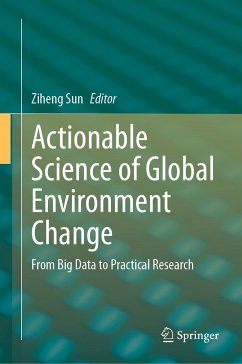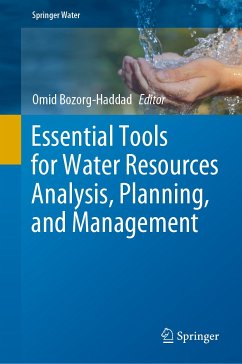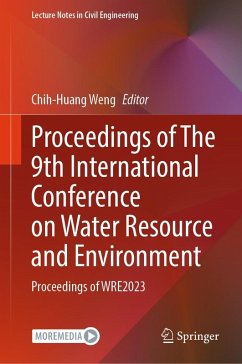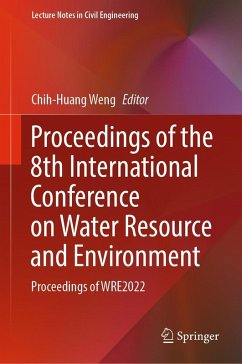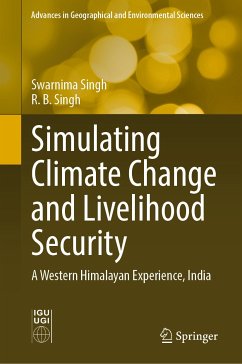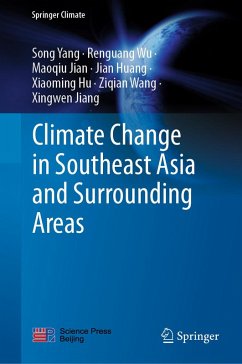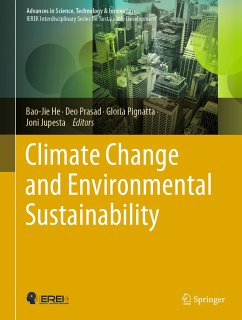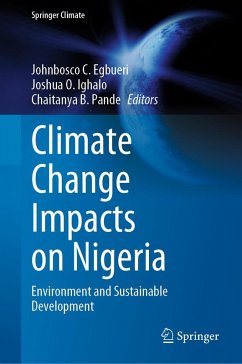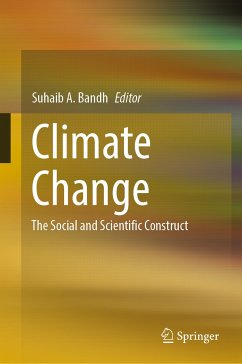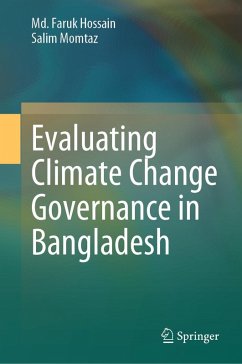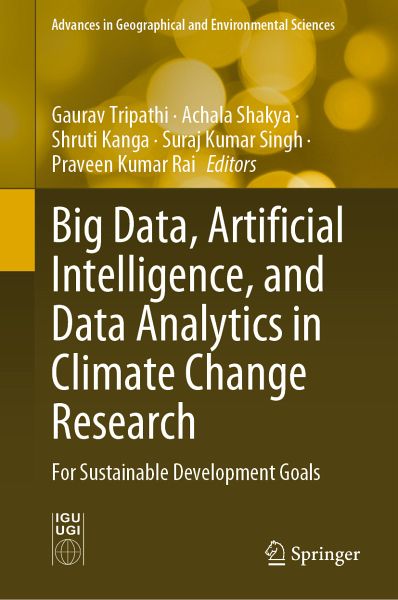
Big Data, Artificial Intelligence, and Data Analytics in Climate Change Research (eBook, PDF)
For Sustainable Development Goals
Redaktion: Tripathi, Gaurav; Rai, Praveen Kumar; Singh, Suraj Kumar; Kanga, Shruti; Shakya, Achala

PAYBACK Punkte
52 °P sammeln!
This book explores the potential of big data, artificial intelligence (AI), and data analytics to address climate change and achieve the Sustainable Development Goals (SDGs). Furthermore, the book covers a wide range of related topics, including climate change data sources, big data analytics techniques, remote sensing, renewable energy, open data, public-private partnerships, ethical and legal issues, and case studies of successful applications. The book also discusses the challenges and opportunities presented by these technologies and provides insights into future research directions.In ord...
This book explores the potential of big data, artificial intelligence (AI), and data analytics to address climate change and achieve the Sustainable Development Goals (SDGs). Furthermore, the book covers a wide range of related topics, including climate change data sources, big data analytics techniques, remote sensing, renewable energy, open data, public-private partnerships, ethical and legal issues, and case studies of successful applications. The book also discusses the challenges and opportunities presented by these technologies and provides insights into future research directions.
In order to address climate change and achieve the SDGs, it is crucial to understand the complex interplay between climate and environmental factors. The use of big data, AI, and data analytics can play a vital role in this effort by providing the means to collect, process, and analyze vast amounts of environmental data. This book is an essential resource for researchers, policymakers, and practitioners interested in leveraging these technologies to tackle the pressing challenge of climate change and achieve the SDGs.
In order to address climate change and achieve the SDGs, it is crucial to understand the complex interplay between climate and environmental factors. The use of big data, AI, and data analytics can play a vital role in this effort by providing the means to collect, process, and analyze vast amounts of environmental data. This book is an essential resource for researchers, policymakers, and practitioners interested in leveraging these technologies to tackle the pressing challenge of climate change and achieve the SDGs.
Dieser Download kann aus rechtlichen Gründen nur mit Rechnungsadresse in A, B, BG, CY, CZ, D, DK, EW, E, FIN, F, GR, HR, H, IRL, I, LT, L, LR, M, NL, PL, P, R, S, SLO, SK ausgeliefert werden.



